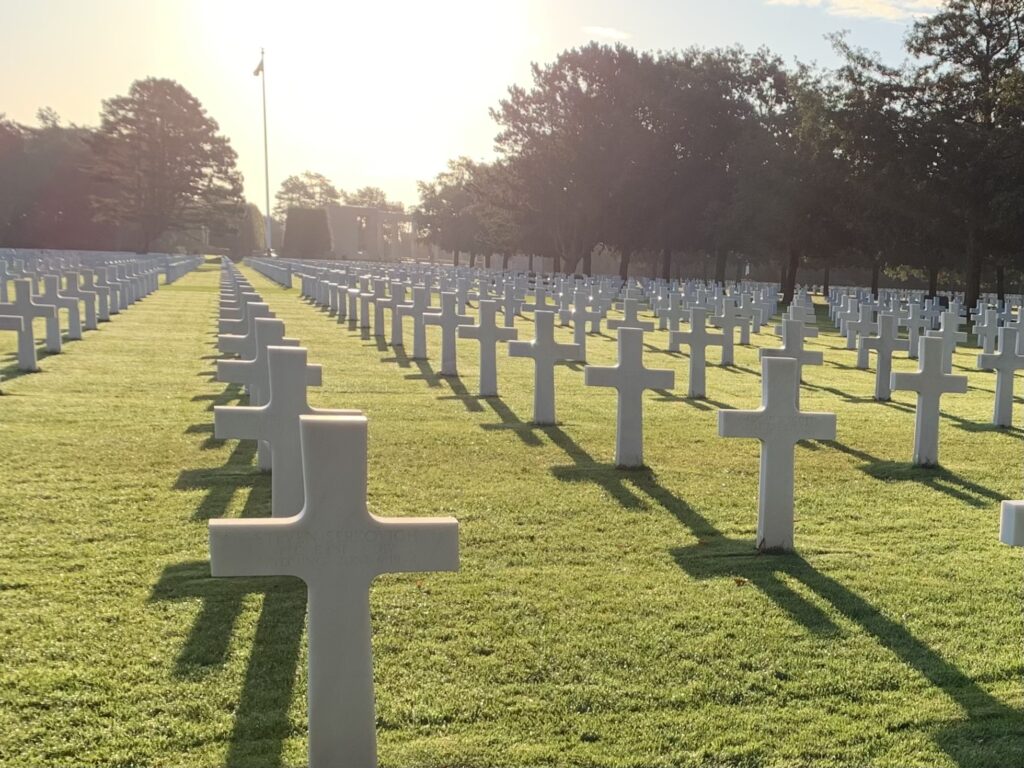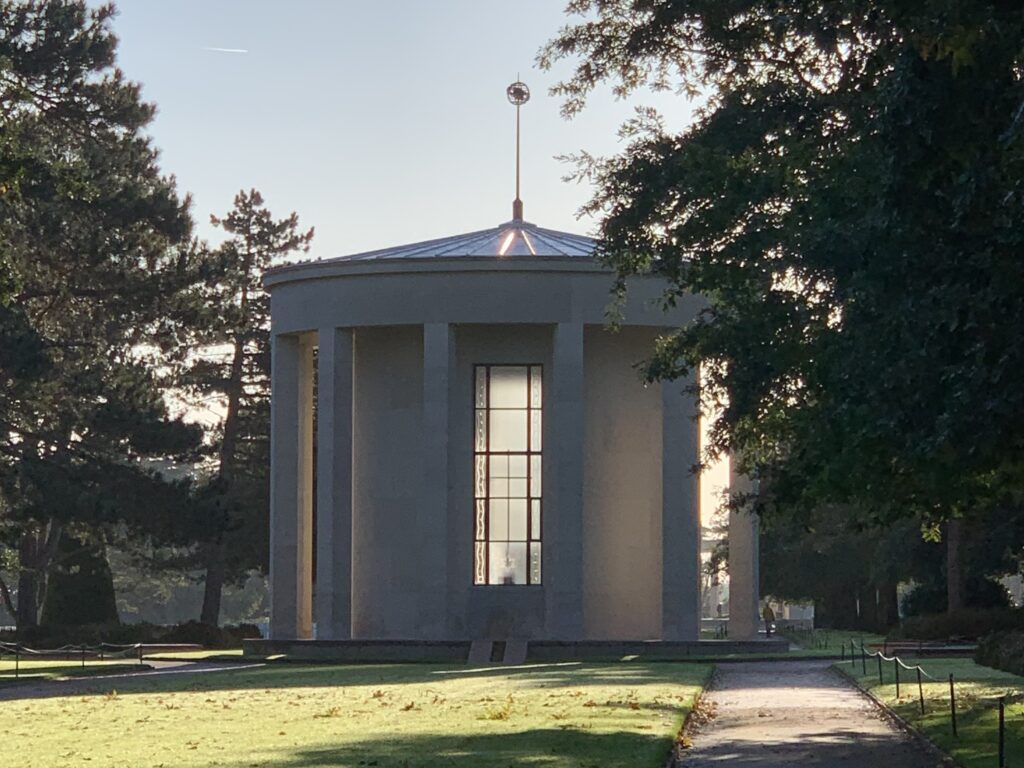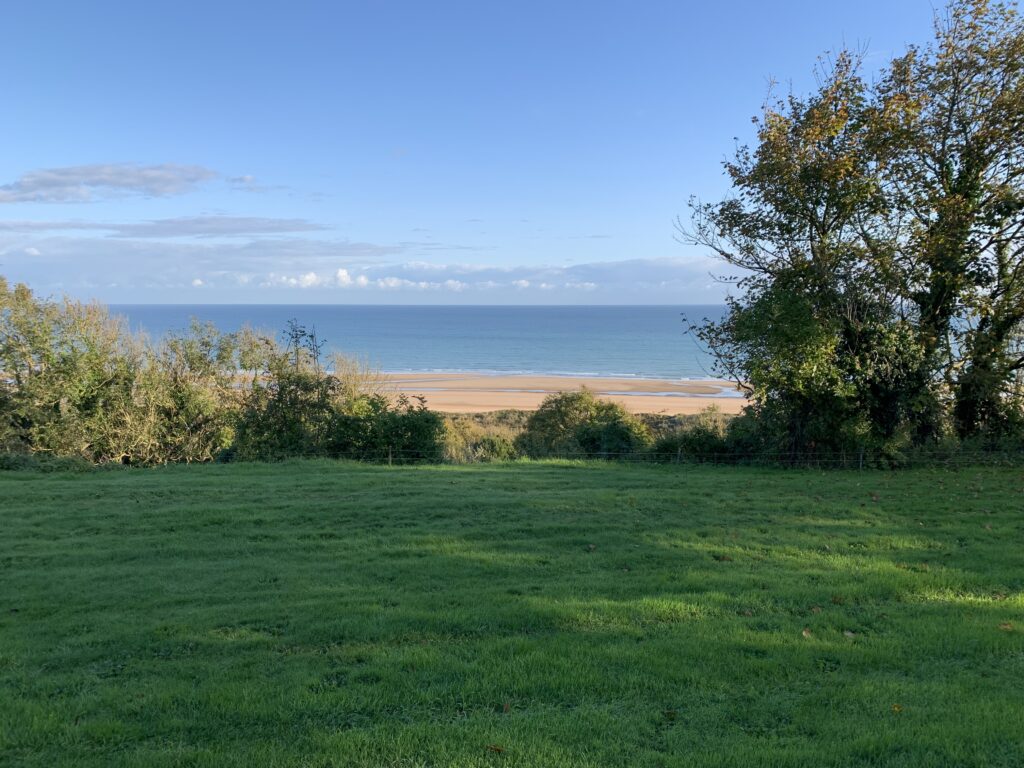Last fall I traveled from Normandy, France, to Paris in the back of a bus with a view out over the French countryside. The green fields and hedges looked peaceful in the quiet morning, but only eighty years earlier war raged over that land. The battle scenes were easy to imagine because I’d spent the previous days visiting beaches and towns where Allied forces began the fearsome work of liberating France from Hitler’s brutal, four-year occupation, in order to liberate survivors from Germany’s inconceivably brutal concentration camps.
Museum exhibits and cemeteries for fallen soldiers served as vivid reminders of the scale of Nazi cruelty and cowardice, and of the Allies’ courage and resolve. The numbers were mind-boggling: 90,000 French children lost in the German invasion of France, 1.4 million Jewish children in the Holocaust, 73,000 Americans swooping in on D-Day as part of the Allied force of 160,000.
I found one museum’s recreation of Hitler’s rise to power especially chilling—how he manipulated people with his charisma and narcissism, how he was such a damaged person, how his damage caused so much damage to so many other people.
Hitler rejected the proposition that we are all created equal. Instead, he maximized power for a self-absorbed few by restricting freedom and opportunity for everyone else. He committed physical and psychological violence to strip rights, well-being, and life away from people who were already marginalized: Jewish people, the LGBTQ+ community, people of color, and many others.
But Normandy also reminded me of those who stand up for humanity—the leaders, soldiers, and citizens with the courage to step forward to block the abuses of bullies and tyrants. “No,” the defenders say in words and deeds. “You may not treat people that way. Get your hands off our human family.” To stand up to bullies is to stand for freedom and equality.
Shrines of gratitude line the Normandy coast, honoring what our nation gave to push back the Nazis. France remains palpably thankful to us for sending thousands of our brave, beautiful young soldiers to storm the beaches then fight through German bullets and bunkers—beach by beach, town by town—bleeding and dying for the sake of French freedom. I felt grateful, too, and I gained a new sense of a uniquely American determination that arrived on French soil in 1944: playfulness rooted in liberty, courage born from caring, jaunty effervescence bubbling up from a spring of justice and equality. That’s the American spirit I envision rising up in the face of oppression, repudiating hatred and claiming power for the people.
The morning before my bus ride to Paris, I visited the American cemetery at Colleville-sur-Mer on a bluff overlooking the English Channel where a fleet of warships once massed. In the center of the graves stood a round chapel with a carved inscription wrapping its wall:
THESE ENDURED ALL AND GAVE ALL THAT JUSTICE AMONG NATIONS MIGHT PREVAIL AND THAT MANKIND MIGHT ENJOY FREEDOM AND PEACE
Row upon perfect row of graves, the golden morning light, cool air with a hint of a breeze like a wink and a grin from a cheeky young ghost—it all gave me hope that enough of us have learned the lessons of the past to stand and defend when we need to. There are things worth fighting for, such as the self-evident truth that we are all created equal. We’re all different but we’re equal in value, and it matters how we show up for each other.


